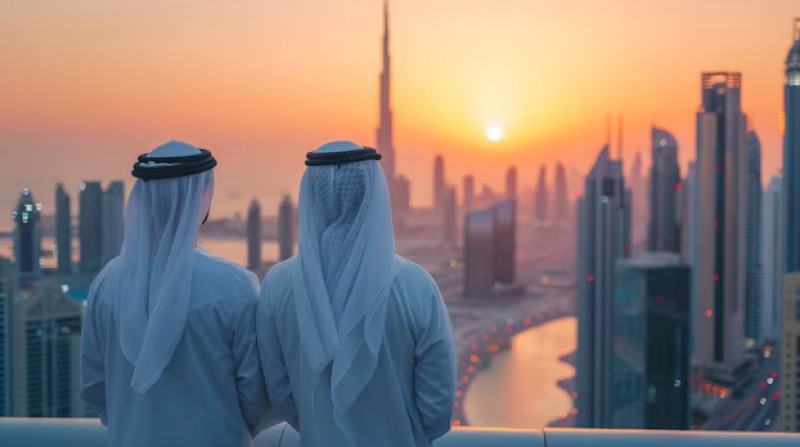The Secrets Behind Dubai's Extraordinary Wealth
Dubai, known for its glittering skyscrapers, luxurious lifestyle, and high-end shopping, is one of the wealthiest cities in the world. But what has led to this extraordinary wealth? The answer lies in a combination of strategic location, economic diversification, visionary leadership, and a focus on tourism and innovation.
Historical Context: The Oil Boom
The story of Dubai's wealth begins with the discovery of oil in the late 1960s. Prior to this, Dubai was a modest fishing and trading port. The discovery of oil dramatically changed the economic landscape, providing the financial foundation for the city's rapid development. However, unlike many oil-rich regions that rely heavily on oil revenues, Dubai's leadership, particularly the ruling Al Maktoum family, made a strategic decision to diversify the economy.
Economic Diversification
Dubai's wealth is not solely dependent on oil. In fact, oil now contributes to less than 1% of the emirate's GDP. Instead, Dubai has successfully diversified its economy into several key sectors:
1. Tourism: Dubai has transformed into a global tourism hotspot, attracting millions of visitors annually with its luxurious hotels, pristine beaches, and world-renowned landmarks such as the Burj Khalifa and Palm Jumeirah. Events like the Dubai Shopping Festival and Expo 2020 have further bolstered its appeal.
2. Real Estate and Construction: The skyline of Dubai is dotted with some of the most iconic buildings in the world. The real estate boom has been driven by ambitious projects and innovative architectural designs. Developments such as the Dubai Marina, Business Bay, and Downtown Dubai have attracted significant foreign investment.
3. Aviation and Logistics: Dubai International Airport (DXB) is one of the busiest airports in the world, serving as a major hub for international travel. Emirates Airlines, based in Dubai, has played a crucial role in establishing the city as a global aviation center. The Jebel Ali Port is one of the largest and busiest ports in the Middle East, making Dubai a critical logistics hub.
4. Financial Services: Dubai has positioned itself as a leading financial center in the region, with the establishment of the Dubai International Financial Centre (DIFC). This has attracted numerous multinational corporations, banks, and financial institutions to set up operations in the city.
Strategic Location
Dubai's strategic location between Europe, Asia, and Africa has made it a pivotal trading and transportation hub. Its geographical advantage has facilitated international trade and commerce, enhancing its economic standing and attracting global businesses.
Visionary Leadership
The leadership of Dubai, particularly under Sheikh Mohammed bin Rashid Al Maktoum, has been instrumental in shaping the city's growth. The leadership's vision to create a modern, diversified economy has driven numerous ambitious projects and reforms, fostering an environment conducive to business and innovation.
Innovation and Technology
Dubai is also investing heavily in technology and innovation, aiming to become a leading smart city. Initiatives such as the Dubai Future Foundation and the Dubai Blockchain Strategy are paving the way for advancements in various sectors, including finance, transportation, and governance.
Conclusion
Dubai's wealth is the result of a multifaceted strategy that encompasses economic diversification, strategic location, visionary leadership, and a commitment to innovation and excellence. By not relying solely on oil, Dubai has created a robust, dynamic economy that continues to thrive and attract people and businesses from around the world. The city's ability to adapt and innovate ensures that its prosperity is likely to continue well into the future.




